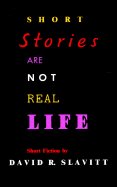
I
loved this book. It has been too long since I have read anything that has gotten me as invigorated and excited about ideas, and the importance of dialogue as the
Argumentative Indian. It is in stark contrast to V.S. Naipul's irritating book on India (called India) where he explains away India's shortcomings to a fundamental lack of vigor and revolution among Indians. Instead,
Amartya Sen (with the precision of a fine surgeon) argues
inter alia that argument and dissent have always played a strong role in India's long history and culture. And furthermore, this tradition has been necessarily the foundation for the largest democracy in the world. He lays out the evidence with a formidable degree of research and knowledge and with a startling clarity in light of the sheer vastness of information in this book.
Through a careful and thoughtful analysis of the stories and writings from ancient India to today's scholars and thinkers, Sen argues that science and reasoning have always been strong part of Indian tradition, and not just mysticism and spirituality. He illustrates this in his wonderful essay on
Tagore (
Tagore and His India) where he discusses the often ideologically different viewpoints of Tagore and Gandhi. He talks about why western authors like Ezra Pound who rallied behind Tagore, only to shun him later on in his career fundamentally misunderstood him. Sen also underlines the importance and relevance of Tagore's ideas and writings in today's India, not to mention the world. For example his remarkable claim that "
'the idea of India militates against the intense consciousness of the separateness of one's own people from others'" (Personally, I can't think of anything that gives me more pride than this idea of India). Sen goes on the explain...
First, internally, it argues against an idea of India as a mixture of separated and alienated cultures and communities, sharply distinguished according to religion, or caste, or class, or gender, or language, or location. Second, externally, Tagore's claim argues against an intense sense of dissociation from other people elsewhere. It also rejects, as we know from Tagore's other writings too, the temptation ot see Indian culture as frail and fragile, something that will break if touched by other cultures and which has to be protected through isolation from outside influences. At one point he asks us not "to agree to be incarcerated in the dinginess of a much diminished India" by agreeing to view India only through the prism of Hinduism. It should be noted that this isn't just a book about how wondeful India is (although that does come up). Sen also discusses the relevance and history of the Hindutva movement, the BJP, the bomb and international trade and globization. His essay on "Class in India" discusses the serious inadequacies of public policy related to chronic malnutrition and education in India. He also discusses the unique case of Kerala within this context. There is much much more to say about this book, that couldn't possibly be related here. Don't take my word for it, pick up the book and be curious. Read the Washington Post review
here. Also this
site shows an interview Amartya Sen did with an overly fawning interviewer
who gushes in the first question, "you have so many interests...who are you really?" The NPR interview that he did is also very nicely done.




